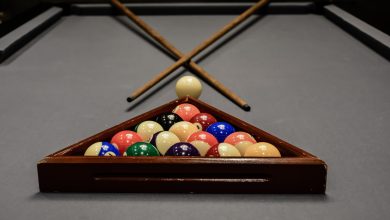Sudoku for Beginners: How to Start and Not Give Up After a Week
Sudoku is one of the most popular logic-based puzzles that can be both fun and mentally stimulating. It’s simple in concept but can quickly become challenging, which is why many beginners give up after only a few days of trying. The good news is, with the right approach and a bit of patience, anyone can learn how to solve Sudoku puzzles and actually enjoy the process. In this article, you’ll discover how to start your Sudoku journey and how to stay motivated beyond the first week.
If you’ve never tried Sudoku before, or you’ve struggled to stick with it, don’t worry — you’re not alone. Many beginners experience frustration when they hit their first roadblocks. That’s why using a helpful resource like sudoku platforms can make the learning curve much smoother. With the right tools and mindset, Sudoku can easily become your favorite daily brain exercise.
Why People Give Up on Sudoku So Quickly
There are several reasons why beginners lose motivation after just a few days of trying Sudoku. One of the most common reasons is unrealistic expectations. Many people expect to master the puzzle quickly, but in reality, it requires patience and logical thinking. Without understanding the basics, it’s easy to feel overwhelmed and give up.
Another reason is starting with puzzles that are too difficult. Beginners often dive straight into advanced levels, which only leads to frustration. To truly enjoy Sudoku, it’s essential to build your skills gradually and celebrate small victories along the way.
Simple Tips to Get Started the Right Way
To avoid giving up after a week, you need a structured approach that helps you learn and stay motivated. Here are a few simple tips to help you enjoy Sudoku and make steady progress.

Start With Easy Puzzles
Begin your journey with simple puzzles designed specifically for beginners. This allows you to understand the basic rules and patterns without feeling overwhelmed. Don’t rush to solve hard puzzles until you’re confident with the easy ones.
Learn the Common Techniques
There are proven strategies that can make solving Sudoku puzzles easier. These techniques help you spot opportunities on the grid and avoid mistakes. As you practice, you’ll naturally start recognizing patterns and solving puzzles more efficiently.
For more useful beginner resources, you can check out https://sudoku-guru.com/ where you’ll find guides and tools to support your learning process.
Essential Strategies for Sudoku Beginners
Before diving deep into complex Sudoku challenges, it’s important to get familiar with essential beginner-friendly strategies. These will not only boost your confidence but also help you stay consistent with your practice.
Top Strategies You Should Know
- Look for rows, columns, or 3×3 grids that are nearly complete — this is where filling in missing numbers is easiest.
- Use the process of elimination — if a number can’t go in a particular square based on other numbers in the same row, column, or grid, rule it out.
- Mark possible numbers in empty squares lightly with pencil or digitally — this makes it easier to visualize potential solutions.
- Double-check your work regularly to avoid simple mistakes building up.
- Be patient — Sudoku is a logic puzzle, not a race.

Common Mistakes to Avoid
- Jumping into hard puzzles too soon.
- Ignoring the importance of basic techniques.
- Guessing instead of using logical deduction.
- Getting discouraged by initial mistakes — everyone makes them.
- Not using available resources like helpful guides or Sudoku websites.
Staying Motivated Beyond the First Week
The first week with Sudoku is often the hardest, but once you get past that stage, it becomes much more enjoyable. The key is consistency. Set aside a few minutes each day to practice. Track your progress, and don’t be afraid to revisit easy puzzles to strengthen your foundation. Remember, Sudoku is not just a puzzle — it’s a great way to exercise your brain, improve focus, and have fun along the way.







